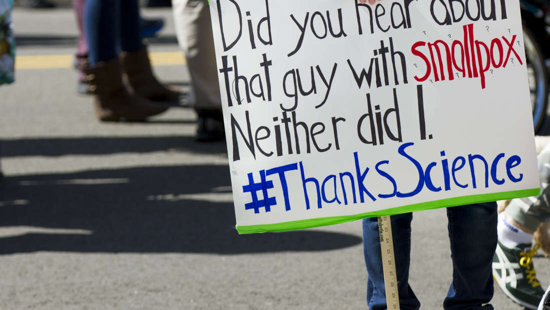A study by researchers from the Universities of Amsterdam, the VU University in Amsterdam and pour own Robbie Sutton has found that that “religiosity, political orientation, morality, and science understanding” are the main predictors of whether or not someone accepts a scientific consensus.
There’s nothing wrong with being skeptical. There is, however, a difference between skeptical claims without substantial evidence to back them up, and being a skeptic on vaccines or human-driven climate change. Both are backed up by a gigantic mountain of facts, so why are certain groups of people still keen to rally against them? This new study gives a clue, linking pre-existing beliefs in spirituality, religion, and political ideas with such forms of science denial. Importantly, however, different ideologies are correlated with the acceptance of different types of consensus. If you’re a climate change skeptic, for example, you’re more likely than not to be a political conservative. If you wonder if vaccines are safe or not, you probably have concerns about moral purity. If you’re a skeptic about GM crops, it’s most likely because you don’t have much trust in science, or you lack a scientific literacy. As expected, those that are staunch religious conservatives “consistently display a low faith in science and an unwillingness to support science” across the board.
This research highlights that scientific knowledge is not always directly correlated with acceptance of it. Thanks to plenty of other “ideological antecedents” – those pre-existing belief systems – it’s a little more complicated than that. This suggests that, for example, if you want to convince your anti-vaxxer friend that vaccines are nothing to be afraid of, it may take a little more than factual information to succeed.
